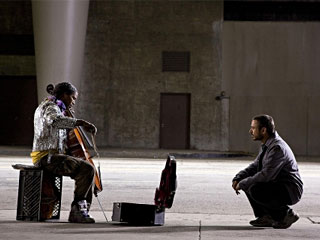
About three decades ago, at Carnegie Mellon University in Pittsburgh, Professor William Chase and a postdoctoral fellow named Anders Ericsson posited an interesting theory. They argued that our innate talents — whether it’s playing the violin, winning at chess, or running a Fortune 500 company — aren’t really innate at all. After many years of research and conducting dozens of experiments, they concluded that the individuals we perceive as “geniuses” — Mozart, Tiger Woods, Itzhak Perlman, to name a few — become who they are through “deliberate practice,” not thanks to some miraculous higher power.
That means thousands and thousands of hours of hard work. Tiger Woods wasn’t born a gifted golf champion. His father, a pro golfer himself, started training him at age three. Mozart’s music wasn’t merely handed down to him by God; the composer rewrote his music numerous times, trying to perfect it as he went along. Violinists like Itzhak Perlman accumulated at least 10,000 hours of practice in 10 years before he finally mastered his art. In one study, Chase and Ericsson proved that great memory can be cultivated — anyone, at any level, can improve their memory skills, not just math wizards and chess players.
It doesn’t take a genius to understand that no one succeeds unless they work hard. But what separates the “ordinary” people from so-called “gifted” people, Chase and Ericsson suggest, isn’t some magical inborn quality; it’s deliberate practice. According to Geoff Colvin, author of the book Talent is Overrated:
Deliberate practice “is designed specifically to improve performance, often with a teacher’s help; it can be repeated a lot; feedback on results is continuously possible; it’s highly demanding mentally, whether the activity is purely intellectual, such as chess or business-related activities, or heavily physical, such as sports; and it isn’t much fun.”
Deliberate practice equals high performance. I understand now why many of my teachers believed I was a “gifted” writer and artist. But my talents weren’t gifts bestowed upon me at birth. I was a good writer because I wrote every single day — journals, essays, school newspaper articles, letters — I even created newsletters that I sent to one of my cousins regularly. I started my first collection of short stories in second grade. And I excelled at art because, at 6, I began drawing pictures on a regular basis. I was practicing deliberately without realizing it.
In retrospect, it makes sense why, in film school, my editing and shooting assignments often stood out (one of my professors once told me he had no doubt that I would one day “make it”). Prior to film school, as a teenager, I shot and edited numerous silly little short films; I volunteered at a local broadcasting station and taught myself video production; during my spare time I wrote dozens of awful screenplays. I didn’t wait until film school to learn the craft of filmmaking.
My point here isn’t to boost my own ego. Far from it. For the last few years I’ve been racked with self-doubt and uncertainty about my future. I’ve never had any doubts about my own talent, but here’s what I’ve realized: I haven’t been working hard enough. And you out there, whoever is reading this: keep working your ass off. Double the amount of time you spend on pursuing your dreams. Stop wallowing in fear and laziness. Surgeons don’t become surgeons after a year of med school; it takes up to 10 years. It’s a mistake to believe we can achieve overnight success simply by wanting it. You’ve gotta get out there on the field and train like crazy. We may never truly know where talent comes from, but what we know for sure is this: deliberate practice pays off.
—
Updated: A perfect example of deliberate practice, “Assassin’s Creed short film His Final Hit:”
Adrian Picardi is a young filmmaker who directs, shoots, and edits his own films on a consistent basis. He is 21 years old. Watch this film. He does not work for a Hollywood studio. His films are all independently produced. There is absolutely no doubt in my mind that Adrian will become famous before he’s 30.

Commentary
Got something to add?